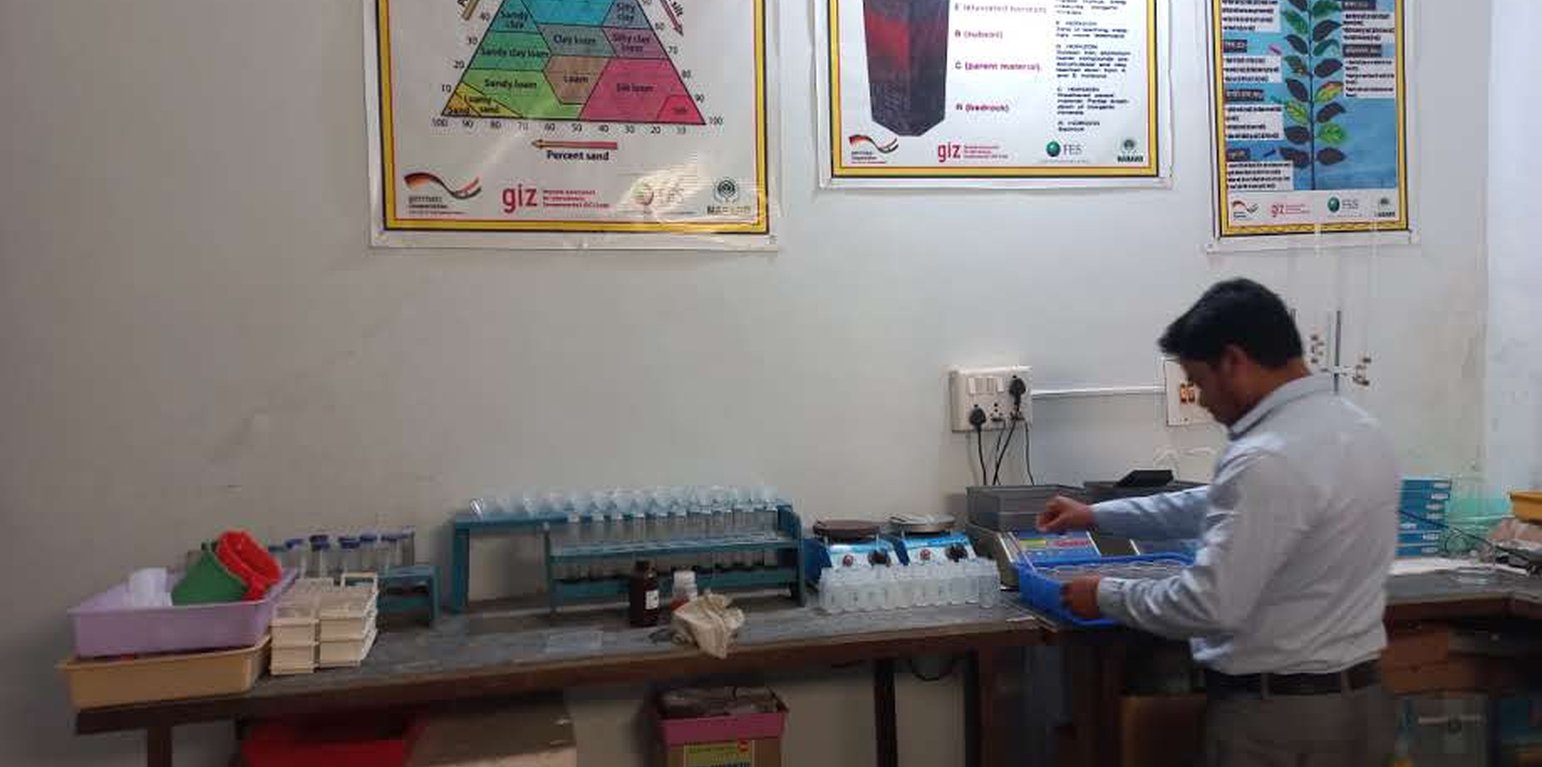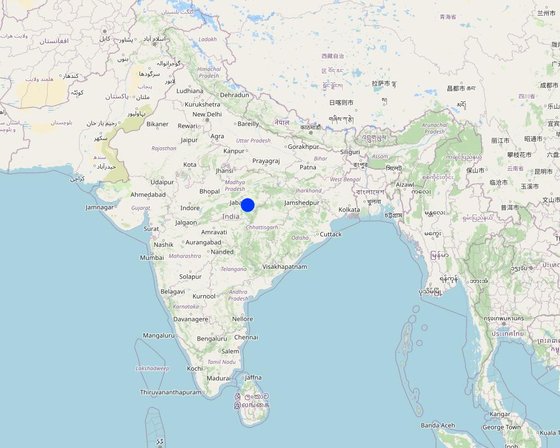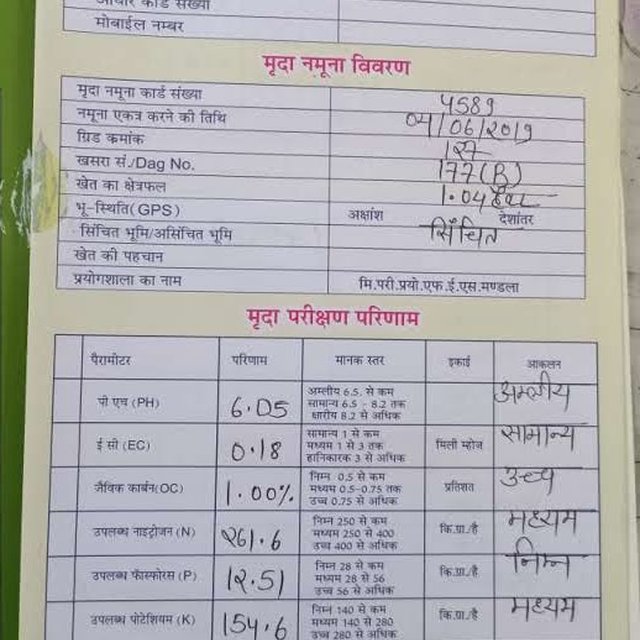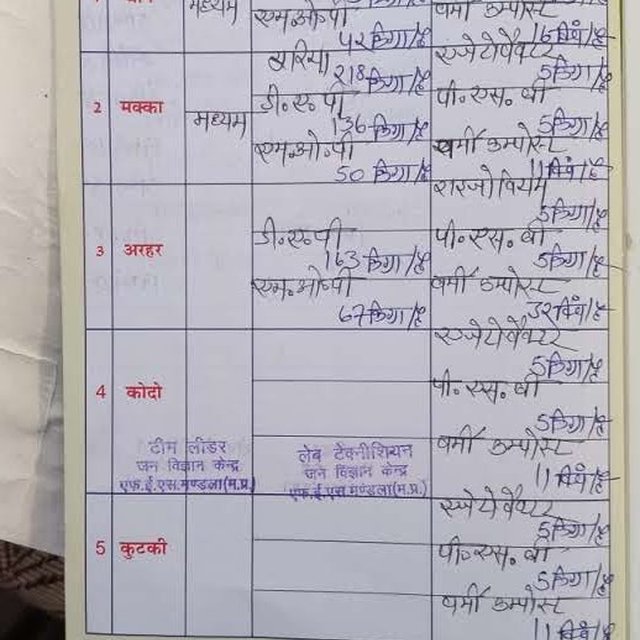



Soil testing is a pre-cultivation activity that gives a good idea about soil structure and mineral composition ratios. The essential nutrients required for various crop growths can be estimated during soil testing. The Foundation for Ecological Security (FES) has established a state-of-the-art soil testing laboratory for testing soil samples in India's Mandla District of Madhya Pradesh. The soil test lab was established in 2016 with a capacity to test 1500-2000 soil samples every year. Based on a soil sampling process, it takes around 2 days to generate the soil test results for 20 soil samples. Collected soil samples are tested for 12 parameters. These parameters include Soil Ph, Soil organic carbon (SoC), electrical conductivity (EC), major nutrients like nitrogen(N), phosphorus (P), potassium (K), secondary nutrients like sulphur, magnesium, iron, boron, zinc, manganese, and copper. Based on the soil test report, farmers are issued a soil health card with crop-specific recommendations for additional chemical and organic inputs into the soil.
To ensure the accuracy of the sampling process and proper dissemination of generated results among the farmers, FES has developed a very systematic process which consists of:
•the collection of soil samples
•the analysis of collected soil samples in an FES lab
•the issuance of soil health cards
•the interpretation of soil test results
•noticing of test results to farmers
•farmers are able to implement practices, recommended by the test result
The entire process, from soil sampling to dissemination, is briefly mentioned below:
•Developing the grids for a random collection of soil samples: The first step is to develop a geographical grid for collecting random samples based on predefined parameters. In the irrigated areas, samples are drawn in a grid of 2.5 ha, while in rainfed areas, samples are drawn from a grid of 10 ha. While developing the grid, farmers' fields are categorized into the following parameters. Each of the parameters is assigned a specific score, and based on the obtained score, each farmer’s land is given a specific number for easy identification on soil maps. These include the a) type of soil, b) type of field, e.g., upland, medium land, or low land, c) crop cycle (Single crop, multiple crops) d) The slope of the field. This entire exercise is a soil survey exercise used to develop soil maps for each geographical unit village, block, district.
•Collection of soil samples: From each classified grid, soil samples are collected from 5 different locations between the harvest of one crop and the sowing/planting of another crop when fields are vacant. The soil samples are collected at a depth of 5 to 15 cm. All the collected soil samples are mixed repeatedly, and a portion of the collected soil is kept aside each time. The mixing process is followed 5-6 times to ensure collected soil samples represent the entire area. Finally, around 500 gm of soil is packed in plastic polythene based on the above grid parameters.
•Soil sample analysis: Collected soil samples are transported to the centralized soil test lab in Mandla (MP) for testing and analysis. The samples are analyzed by qualified lab personnel. The analysis process for the above mentioned 12 parameters takes around 2 days (considering 8-9 working hours in a day).
•Issuance of soil health card: Based on the results obtained from the analysis, soil health cards are issued to farmers. The soil health card contains the following information in the local language (Hindi) so that farmers understand the test results and their implications:
a.Basic details of the farmer: name, address, soil grid, GPS coordinates, field identification number, etc.
b.Soil test results for above mentioned 12 parameters: results of the soil test in their respective units, standard numbers, grading of the obtained result (acidic/saline for PH., high, medium, low for other parameters)
c.Crop-wise soil correction recommendations for major crops: recommendations for synthetic fertilizers, biofertilizers, and compost
d.Pre-printed information with photos for identification of nutrient deficiency in the crops.
•Dissemination of soil health card to farmers: To ensure that farmers understand the results and implement the practices at their field, local community resource persons reach out to every farmer to make them understand the soil test results and closely monitor their farmers’ practices across the crop stages. Farmers are also encouraged to maintain farm diaries for their practices. They are also trained in the preparation of various bio-inputs and compost for application in their field.

Localização: Mandla, Madhya Pradesh, Índia
Data de início: 2018
Ano de término: n.a.
Tipo de abordagem

| Que partes interessadas/órgãos de implementação estavam envolvidos na abordagem? | Especifique as partes interessadas | Descreva o papel das partes interessadas |
| Usuários de terra/comunidades locais | Farmers from the project area | Soil samples were collected from the field of farmers. They have actively participated in the projects for managing the soil samples, participating in the capacity building programs, and implementing the recommended practices. |
| Organizações comunitárias | FES, the implementing NGO, have formed the Villages Environment Committee (VEC) in their project villages as community-based organizations | VECs facilitated the implanting of a project by mobilizing the communities as and when needed. FES reached farmers through the VECs, to collect the soil samples or disseminate the information. VECs also facilitated community-level implementation activities. |
| Especialistas em GST/ consultor agrícola | SLM Specialist | Documentation of the activities |
| Organização não governamental | Foundation for Ecological Security (FES) is a well-known NGO registered in India. It focuses on ecology-related issues and works closely with farmers and forest-based communities. | FES played an essential role in the project. Primary activities were as follows: 1. Establishment of soil testing laboratory and hiring the technical team to conduct the soil test lab 2. Collection of soil test samples and building the capacity of farmers on soil sample collection 3. Conducting soil test results and issuance of soil health cards to farmers 4. Developing a soil health map for the project areas 5. Capacity building of farmers for the interpretation of soil health cards and ensuring the implementation of recommended practices |
| Organização internacional | GIZ, India | Funding of the project |
As decisões foram tomadas por
As decisões foram tomadas com base em
1. Importance of soil testing for the judicious use of fertilizers
2. Methods for soil sample collection
3. Interpretation of soil health card
4. Dissemination of soil test results and ways and means for implementing the recommended practices following organic and non-organic implementation practices
Different equipment used for testing the soils
Different tools are used for collecting soil samples and for soil testing
A mão-de-obra dos usuários da terra foi
Soil health card-based changes in soil management and developing the evidence for soil health monitoring
Reduced the cost of applying fertilizers and other inputs through a result-based application
Training and handholding by the team of implementing partners have helped land users to interpret the result of soil health card, collection of soil samples and following the recommended practices
Other stakeholders such as implementing team got information about the outcome of their practices. More importantly, the soil health card was helpful in providing precise information on the application of fertilisers and bio-inputs.
Youths were greatly involved in collection of soil samples
Yes. The benefit in both reduced cost and improved soil health are the triggers to sustaining the practices. Also, the involvement of local community institutions will also ensure the sustainability of interventions.